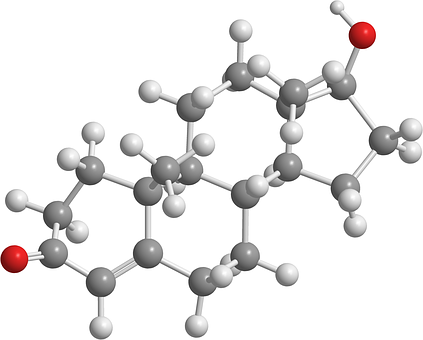Testosterone replacement therapy is a qualified hormone replacement therapy (HRT). This signifies that it should be administered only when there is a need for it, for purposes of improving the quality of life of the patient.
Aging is a natural biological process that affects both men and women, and one of the impacts of aging is changes in the hormonal balance or composition of the body. These changes can be normal and expected.
They can also bring along a number of uncomfortable symptoms. Such may include a decreased volume of muscle mass, low sex drive, or unexpected weight gain. Men who are clinically diagnosed as having reduced amounts of testosterone in their bloodstream can opt to undergo a TRT Australia program.

What is TRT in Australia?
The natural tendency of the male human body as it further advances in age is to decrease its production of this important hormone. It is said that testosterone is the hormone that makes a man “man”, without it or lowered concentration of this hormone in the male human body could hurt his male characteristics.
Hence, it may affect the quality of his life.
Comprehensive studies in the past have indicated that the production of testosterone in the male human body reaches its peak from age 20 up to 30. From age 30 onwards, the male body’s production of this invaluable hormone will start to decline, gradually.
The testosterone production decrease is expected to drop around 1%- 2%, every single year.
Undergoing TRT in Australia should be taken into consideration, most especially if the reduced concentration of this hormone in the bloodstream is bringing along undesirable changes in the body functions and thus affecting the quality of life.
Indicating symptoms of reduced T-levels in the body may include difficulty in falling asleep, increased body fats, lethargy or low energy, low sex drive, low semen volume, erectile dysfunction, reduced bone, and muscle density, and mood swings.
How Do We Administer TRT in Australia?
Administering of testosterone replacement therapy will depend upon the chosen treatment method. TRT Australia products usually come in an array of forms, and they come available on a daily and monthly dosing. The treatment can be availed in patches, injections, pills, topical creams and gum rubs which need to be applied daily.
Who is a Likely Candidate for a TRT Program?
Men, who are clinically diagnosed as having lower than expected T-level in their system and are also experiencing significant symptoms of TRT may think about undergoing this HRT program.
While obesity and aging are the usual indicating signs of low-T, there are instances that it can signify an issue on pituitary function. Therefore, a likely patient for TRT should submit himself to a series of blood test processes if only to determine whether his current T-levels qualify him to undertake testosterone replacement therapy or not.
In many cases, dramatic turn or changes in the lifestyle can help bring about much-desired improvements in testosterone levels. These lifestyle changes may involve enough rest and observing an improved diet.
If positive lifestyle changes fail to improve a man’s T-levels and all his pituitary functions are identified as normal and in balance, testosterone replacement therapy may be considered and hopefully would help achieve for him an improved quality of life.
Never Allow Hormonal Changes Affect Your Life
It is normal and natural for the aging process to bring about hormonal changes. However, what is not normal and acceptable is to allow these changes to make some interference with your daily life.
If you are diagnosed as having a reduced amount of testosterone in your bloodstream and these changes are bringing you uncomfortable challenges, the best recourse you have for this is to reach out to a reputable TRT doctor. Such a qualified medical professional can determine if you are indeed a qualified candidate for TRT or not.




 who specializes in male reproduction. Following diagnosis, you and your doctor can determine the best course of action for your low testosterone depending on your desired outcomes, which may include sexual or reproductive function.
who specializes in male reproduction. Following diagnosis, you and your doctor can determine the best course of action for your low testosterone depending on your desired outcomes, which may include sexual or reproductive function.